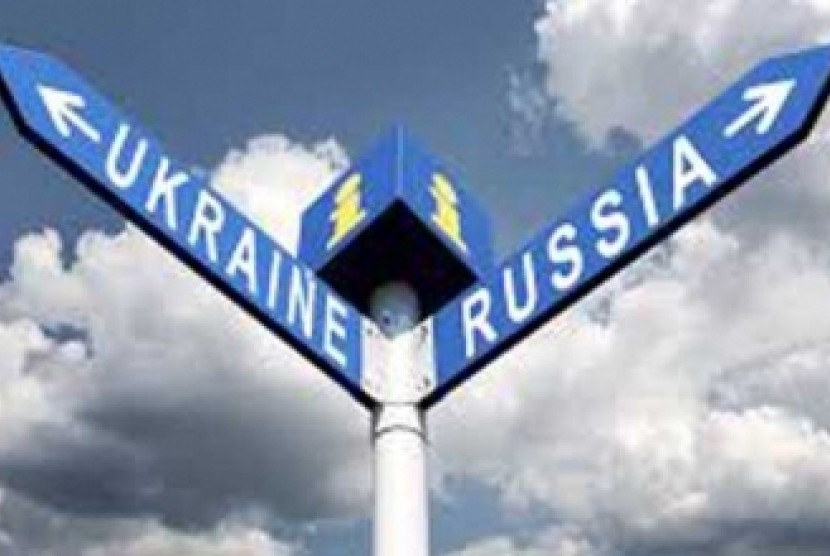REPUBLIKA.CO.ID, KIEV -- Ukraine embarked on delicate diplomatic negotiations with Russia on Monday aimed at averting a debilitating gas cut and ending a bloody separatist insurgency by the end of the week.
The meetings in Brussels and Kiev are the first challenges for new Ukrainian President Petro Poroshenko, who has vowed dialogue with Moscow to try to prevent the bitterly divided former Soviet state from splitting.
EU-mediated gas talks under way in Brussels come on the eve of a Russian deadline for Ukraine to cover a debt of nearly $4.4 billion (3.2 billion euros) or have its shipments end on Wednesday.
About 15 percent of Europe's gas from Russia transits through Ukraine -- a dependence that EU nations have been trying to limit.
Analysts said the fuel freeze would also deal a bruising blow to a Ukrainian economy that the IMF already expects to contract by five percent this year.
Ukraine has refused to pay the bills in protest at Russia's decision to nearly double rates in the wake of the February ouster of Kiev's Kremlin-backed president.
An unnamed Ukrainian official said he expected Kiev's Naftogaz to make an immediate payment of $1.0 billion (730 million euros) for gas it received in the last two months of last year.
"Another $451 million may be paid in the near future," the Ukrainian source said.
"And for April and May, we expect an initial payment of $500 million."
But as officials negotiated gas prices, tensions between Moscow and the West showed little sign of abating, with Russia labelling NATO military manoeuvres in the Baltic states an "act of aggression".
Moscow also accused the European Union of putting pressure on Bulgaria to suspend work on a key gas pipeline.
The South Stream project is one of Russia's most valued projects, intended to allow gas deliveries to bypass Ukraine as a transit country to Europe.
"Sometimes Brussels is guided by a desire to punish, a desire to take revenge," Foreign Minister Sergei Lavrov said, though the EU says the suspension is purely for procedural concerns.
Upon taking the oath of office, Poroshenko conceded that the eastern uprising could not be resolved without the direct involvement of Russia.
On Sunday, the two sides conducted the first of what the Ukrainian leader said should be daily negotiations involving a representative from the Organisation for Security and Cooperation in Europe -- a Vienna-based body that was first tasked with securing peace during the Cold War.
Ukraine's acting Defence Minister Mykhailo Koval said that Poroshenko's peace push "instills great hope."
But the president's pledge was dismissed as political grandstanding by separatists who have taken effective control of a dozen towns and cities and are now seeking to join Russia.
"We are continuing to mobilise," the region's self-proclaimed deputy premier Andriy Purgin told Russia's Interfax news agency.
And Poroshenko himself did not spell out how he intended to make gunmen comply with the ceasefire or whether he would order a full military withdrawal.
NATO on Monday launched one of its largest military manoeuvres in the Baltic states since the crisis began.
Around 4,700 troops and 800 military vehicles are participating in the Sabre Strike exercises near the Latvian capital Riga.


